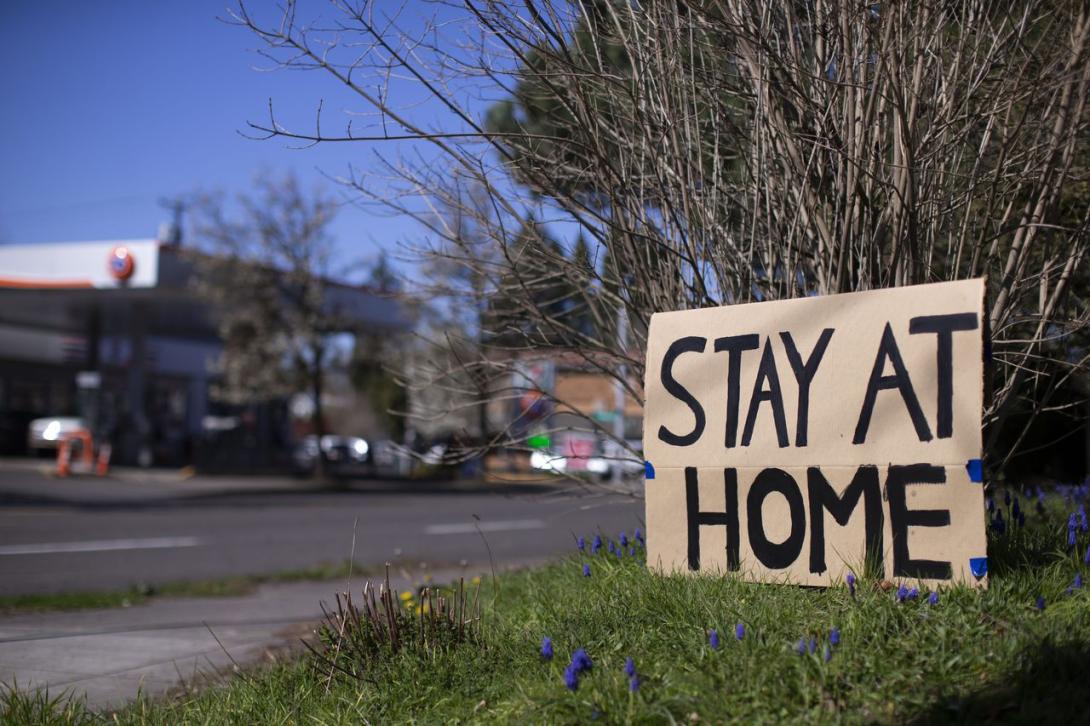
Gov. Kate Brown, under fire for the ambiguous guidelines she issued Friday on social distancing, issued a more definitive order Monday morning that establishes legally enforceable restrictions on public activity.
The aim is to sharply reduce the spread of the coronavirus outbreak, which has infected at least 161 Oregonians and killed five. Brown’s order follows shelter-in-place edicts in many other states and localities, including California, New York, Illinois and New Jersey.
Monday’s order is the most profound action in a series of steps that have fundamentally altered life in Oregon this month. As in the other states, though, Oregon’s order includes many exceptions for businesses and other services that Brown deems essential.
Construction and manufacturing, for example, may continue so long as they “ensure that their employees are maintaining social distancing measures.”
Day cares can continue to operate but with restrictions. Restaurants can continue to offer delivery and to-go service, and grocery stores, gas stations and hospitals, among others, may remain open.
Businesses that must close include shopping malls, gyms, barber shops, beauty salons, nail salons, spas, theaters and amusement parks. Offices must close to people who can do their jobs remotely.
Additionally, Brown classified playgrounds, basketball courts, skate parks and other outdoor recreation facilities as off limits.
People should only engage in activities outside their home, the governor said, if they can maintain a six-foot distance from others to avoid spread of the virus.
Those who defy the order can be charged with endangering public health, a class C misdemeanor. People found to have violated her order could be jailed for up to 30 days or fined $1,250.
The governor faced increasing pressure to act over the weekend as vacationers swarmed the Oregon coast in defiance of her Friday afternoon directive that travelers stay home. The health care community urged more stringent action, warning that if people continued to circulate the virus would, too. And mayors, including Portland Mayor Ted Wheeler, said they would act in their own jurisdictions if the governor did not.
“I started by asking Oregonians to stay home and practice social distancing. Then I urged the public to follow these recommendations," Brown said in Monday’s announcement.
“Instead, thousands crowded the beaches of our coastal communities, our trails, our parks, and our city streets, potentially spreading COVID-19 and endangering the lives of others across the state. Now, I’m ordering” Oregonians to stay home, she wrote. “To save lives and protect our community.”
As public pressure mounted from health professionals and politicians for Brown to issue more stringent rules to keep people at home, the state’s business community issued its own call for the governor to maintain key economic activities and to ensure the same rules apply statewide.
The governor’s order appeared to satisfy both the business community and politicians.
“A statewide ‘stay home, stay healthy’ order provides certainty across regional boundaries,” said Andrew Hoan, CEO of the Portland Business Alliance. “We support Governor Brown’s effort to create an effective response and statewide policy for all Oregonians.”
Wheeler endorsed the governor’s action.
“In the absence of a vaccine, the best defense we have right now is protecting the community from infection with social distancing,” Wheeler wrote. “The governor’s statewide Stay Home, Save Lives order strengthens and reinforces the seriousness of that need.”
Whether the restrictions are adequate remains an open question. Construction sites and manufacturing may continue to operate under the order, and while they allow for more distance than office work or many service jobs, those activities can involve some human interaction that could allow the virus to continue spreading.
Brown’s announcement didn’t directly address travel, hotels or vacation homes and rentals. It also wasn’t clear how the order applies to liquor stores or marijuana shops, which had sought a special exemption.
And the governor’s order did not offer clarity on how the order will apply to the state’s homeless population.
The order also didn’t indicate whether the governor plans to institute patrols, a complaint line or take other steps to enforce the order.
The governor did not hold a press call Monday, as she did every weekday last week, to take questions about her announcement and her office didn’t immediately respond to inquiries about details.
-- Mike Rogoway | [email protected] | twitter: @rogoway | 503-294-7699
This article was originally published by The Oregonian/OregonLive, one of two dozen news organizations throughout the state sharing their coverage of the novel coronavirus outbreak to help inform Oregonians about this evolving health issue.